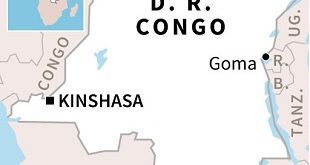
When the first cases of coronavirus were detected in December 2019, no one could have ever predicted that it would lead to a pandemic. AZA Trading Desk Manager, Mungai Murega shared insights with The Independent on the economic toll of COVID-19 and potential ways in which African businesses can mitigate the negative effects of the virus on the economy.
How will the coronavirus affect economic growth in the region?
It is predicted that the economic growth of the continent will shrink by 1.2%. So far, there has been about $29 billion in lost revenue as a result of the pandemic in Africa. China is one of the biggest trading partners on the continent. At the moment, it is estimated that there are over 1 million Chinese nationals in Africa and 10,000 Chinese-owned businesses. The UN estimates that the global economy is going to shrink by $1 trillion this year. This is a massive figure and will definitely affect each one of us.
How exactly will this affect each of us?
There is less demand for raw materials by China due to decreased production. Secondly, higher prices of goods in African countries due to reliance on exports from China. There’s a multiplier effect from these. The lockdown in China has led to a huge effect on the African economy. We have forecasted a $50 billion drop in exports from China. The goods that the African countries had imported are also slowly running out. There will be pressure in terms of pricing for what is available.
We also see shrinkage in FDI by between 5 and 15% because investors do not have the appetite to invest currently, heavily impacting on key sectors. Investors are taking and a ‘Wait and See’ approach as a result. The United Nations Economic Commission for Africa (UNECA) had a projected 5% growth in FDI in the continent in 2020 but COVID-19 has reversed this.
Which countries in Africa are best placed to avoid COVID-19 impact and why?
I would say Madagascar and Ghana because the contribution of exports to their GDPs is 10% and 15% respectively. This is minimal and may not have so much of an impact on their economies. However, countries like South Sudan, Angola and DRC may feel a bigger impact. For instance, 90% of South Sudan’s exports are to China, for Angola it is 60% of all its global exports are to China, while for DRC, it is 40%. Given the less demand for raw materials by China as a result of decreased production, this will have a huge effect on these countries’ economies.
Would you say some industries are better placed than others?
Some sectors such as tourism and travel were caught off-guard as was aviation and the hospitality industry. The retail sector, on the other hand, is better prepared given that there will continue to be purchases. Telecoms are also better prepared because their services are mainly digitized. Pharmaceuticals are also well prepared because they are mainly the ones offering medical solutions that are needed by the public.
How can policymakers help to cushion the blow from the fall out as a result of coronavirus?
Given that many African countries are debt-laden. Many are really fragile. A number of economies have thus opted to ease on the monetary and fiscal policies as a measure to cushion the economy. Ensuring that credit is easily available to enable the citizens to recover, also governments should introduce tax incentives to help cushion them against the anticipated crisis.
It is anticipated that many African businesses, especially startups could go down as a result of COVID-19. Much as this is nothing as seen before, how can startups find their way around this pandemic?
Considering this is a tough time for the economies and the general business environment, I would urge startups to scale down as well as try as much as possible to reserve their cash flows and liquidity and slowdown in growth due to economic uncertainty.
Many businesses have explored the opportunities that the internet provides. However, these are mainly companies in the service sector. Where do you see the opportunities for other sectors going forward?
Yes, the service sector has really leveraged on the opportunities provided by the internet. Opportunities in other sectors would probably be in health-related matters as at this point governments will tend to reallocate budgets to support the health sectors.
A number of governments are rolling out rescue packages for companies during this period. Is this a viable way out and is it a sustainable strategy given that we do not know how long this crisis could last?
Considering that governments collect a lot of taxes from companies and on the other hand are the biggest spenders, rescue packages by governments are imminent. Kenya, for example, has already given tax relief in a bid to caution the economy from crumbling, so yes, governments need to work closely with central banks in order to help the economies maneuver these harsh times.
What would you say are some of the vital lessons Africa should take from this crisis?
African business should learn to divest from concentration in particular countries for imports and exports. They should also embrace intra-Africa trade, Africa is a very rich economy with a lot of resources which we can improve on simply by increasing trading activities within the continent.
****
CLICK TO READ ONLINE MAGAZINE HERE
 The Independent Uganda: You get the Truth we Pay the Price
The Independent Uganda: You get the Truth we Pay the Price


